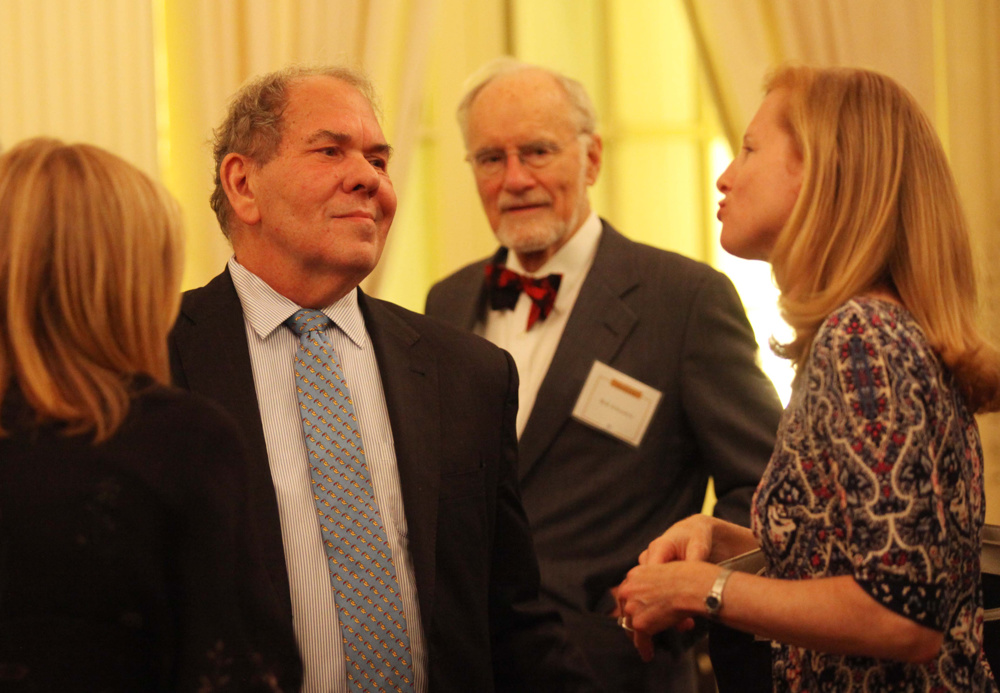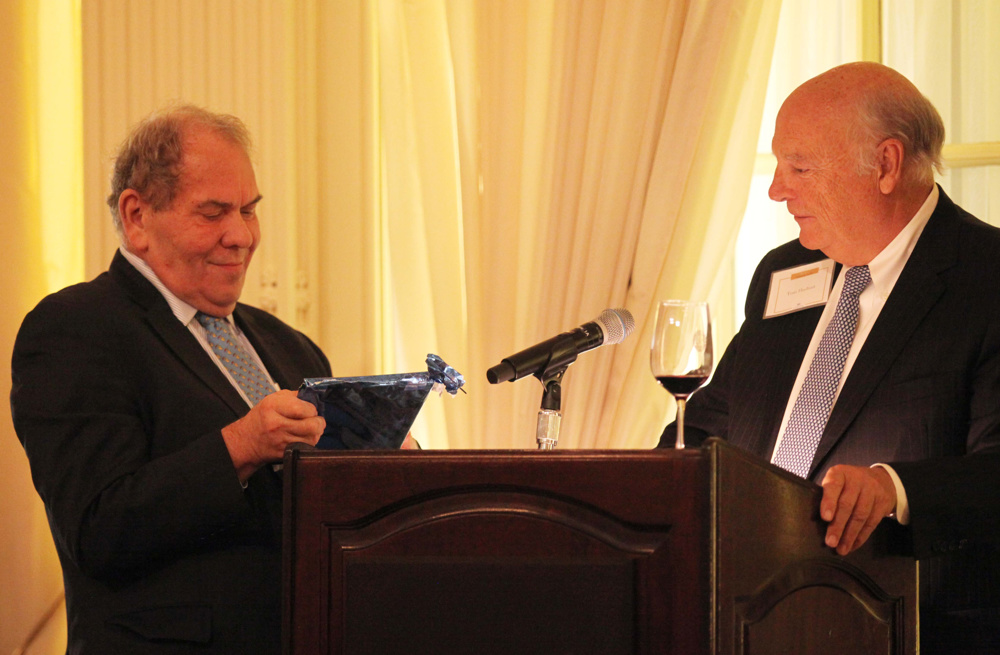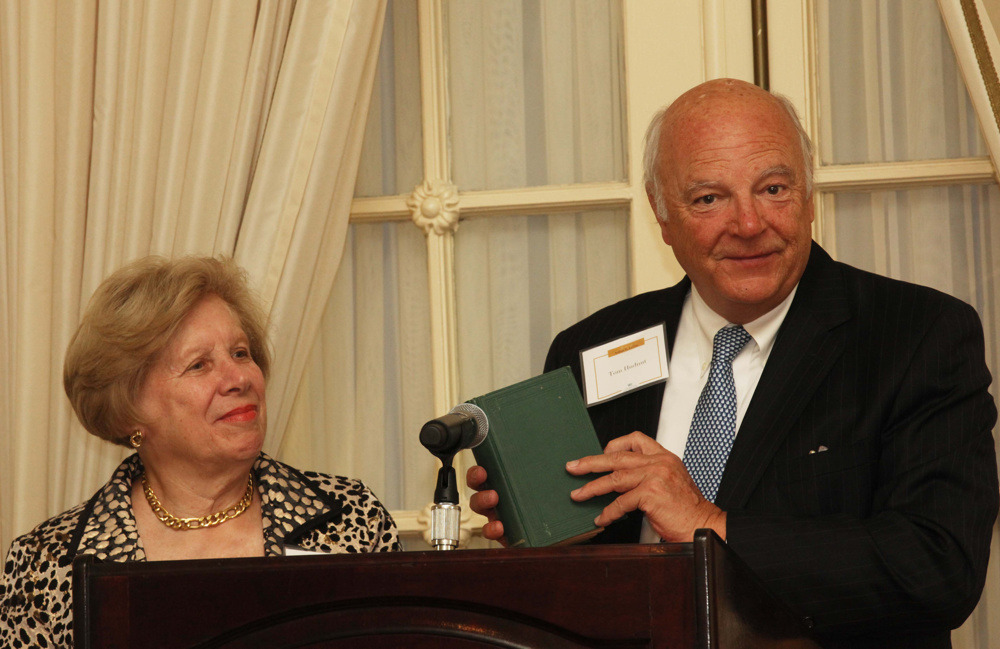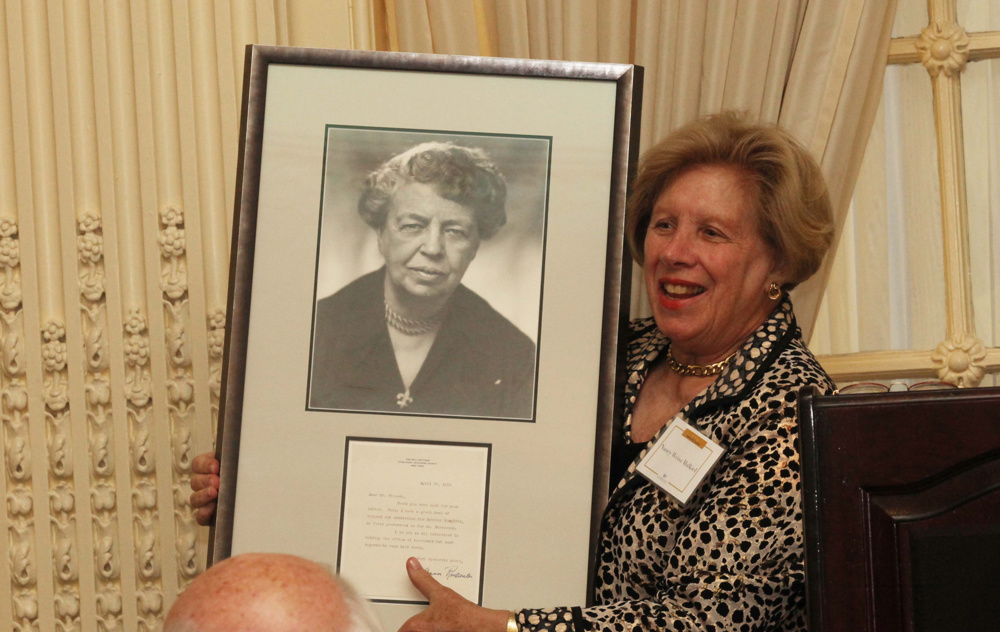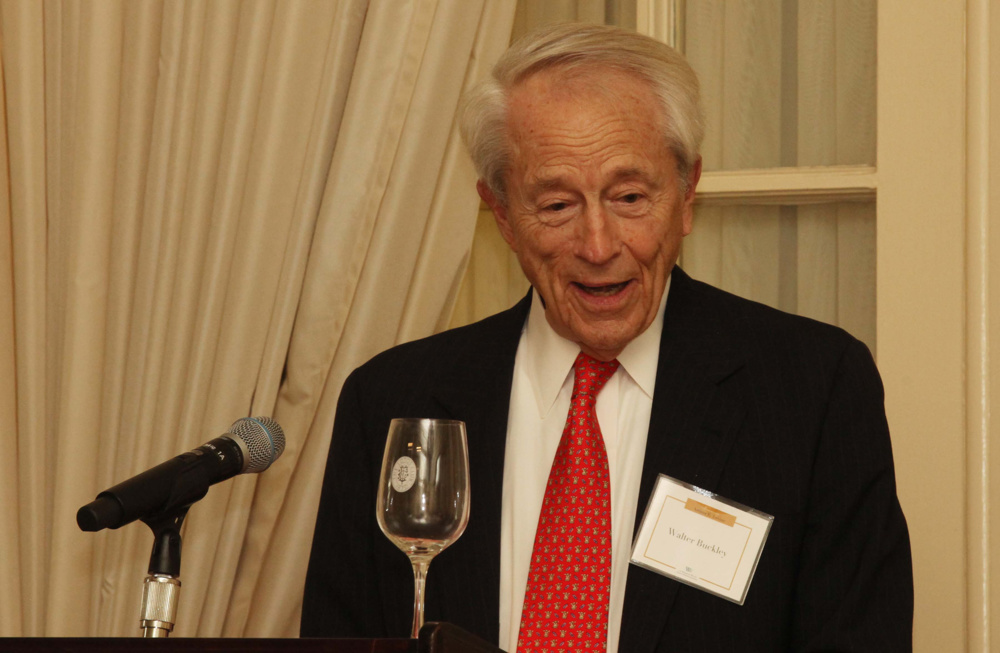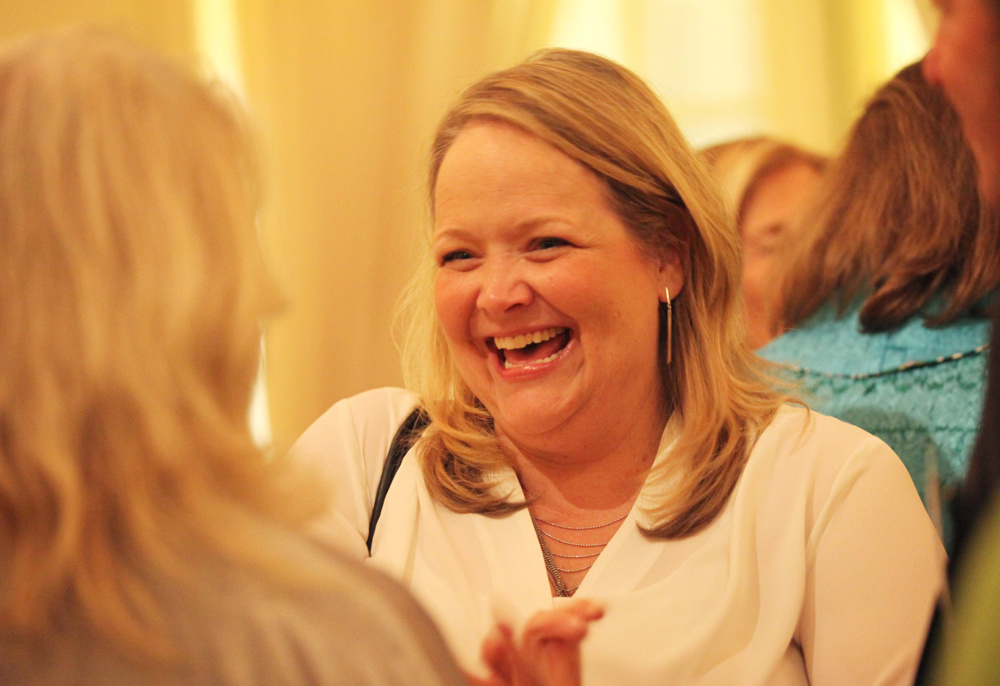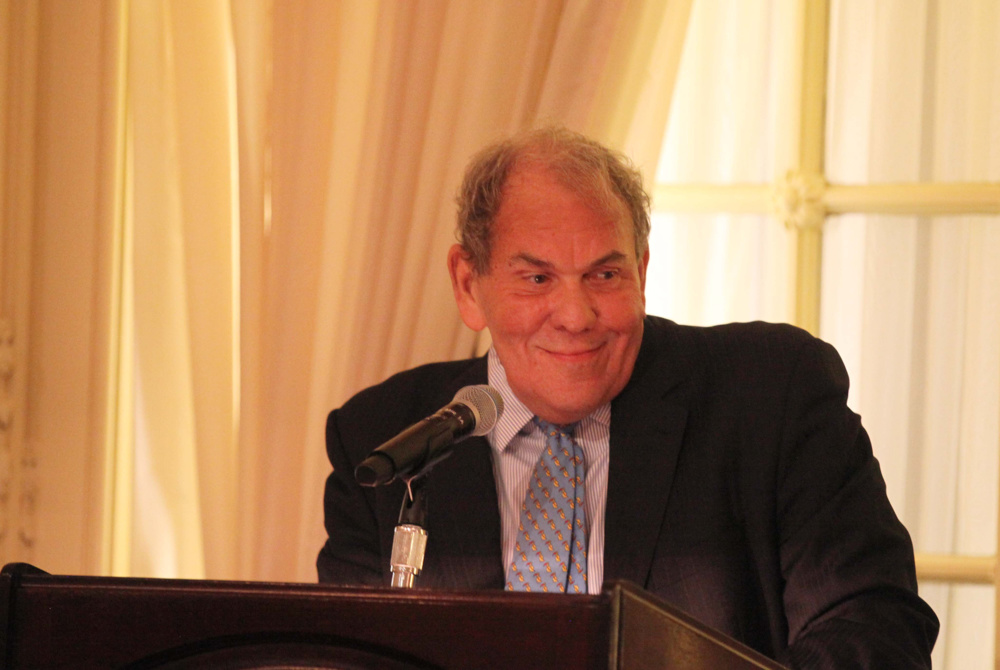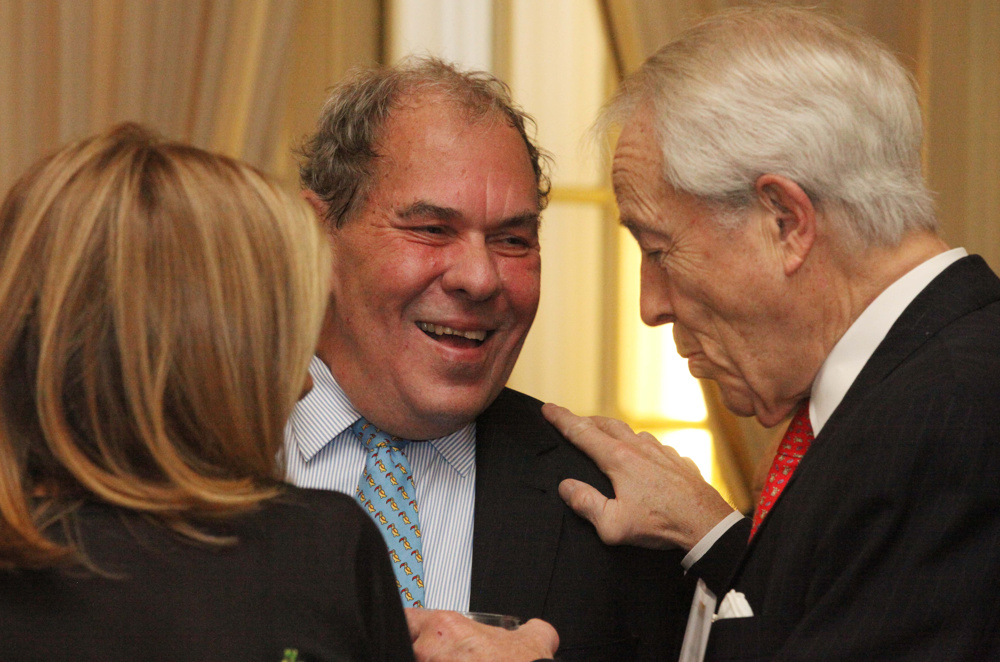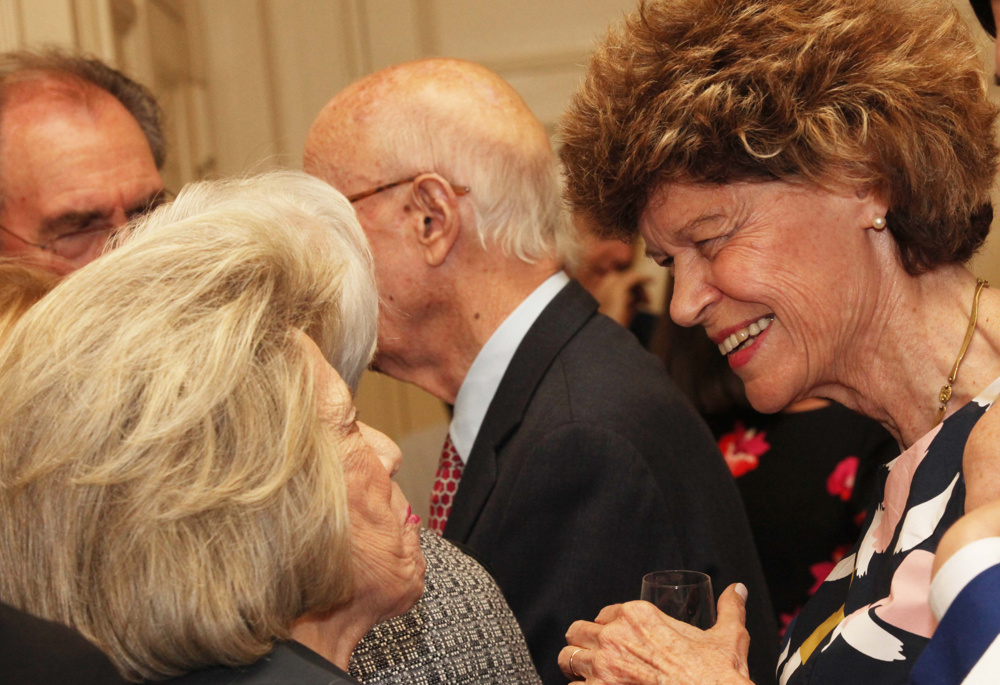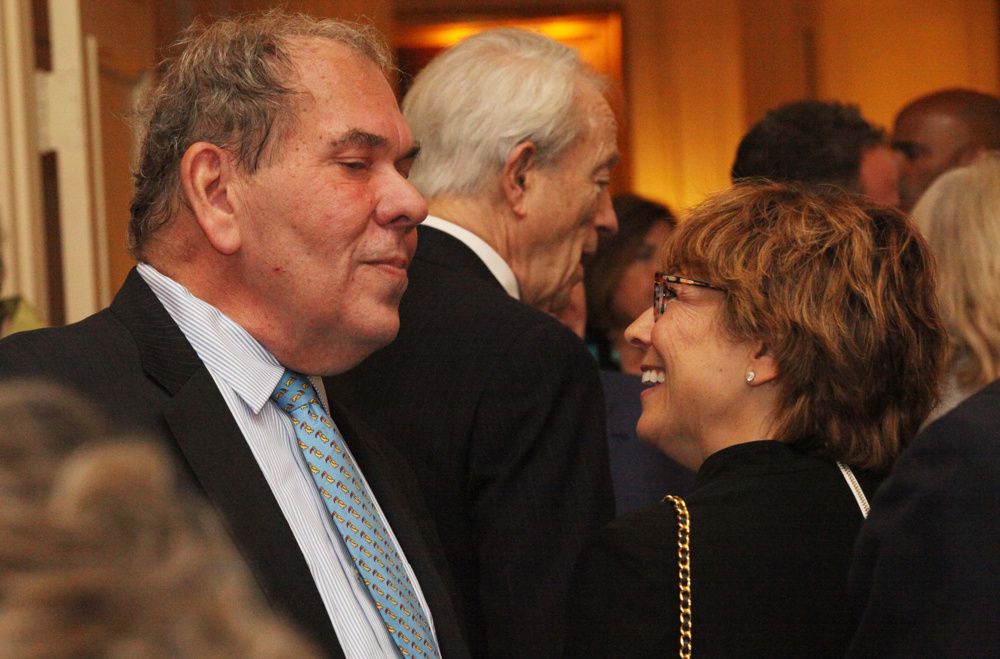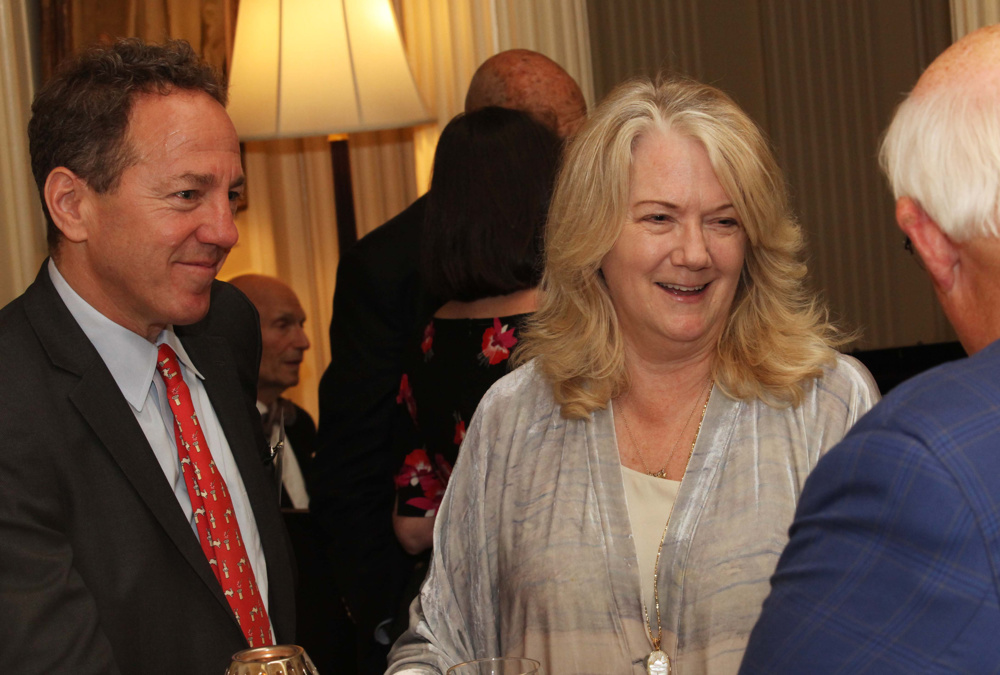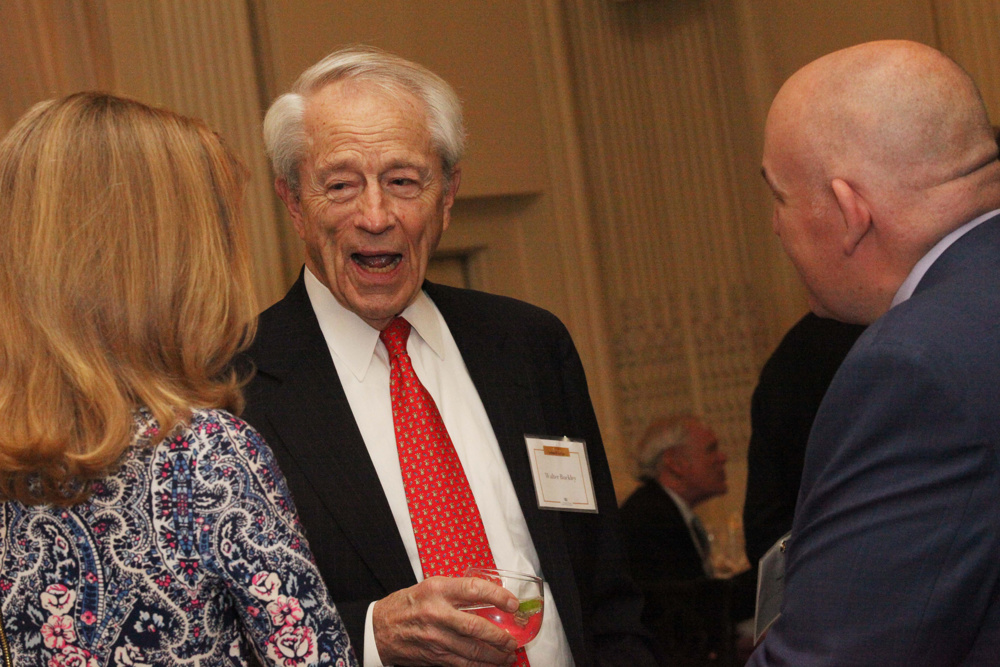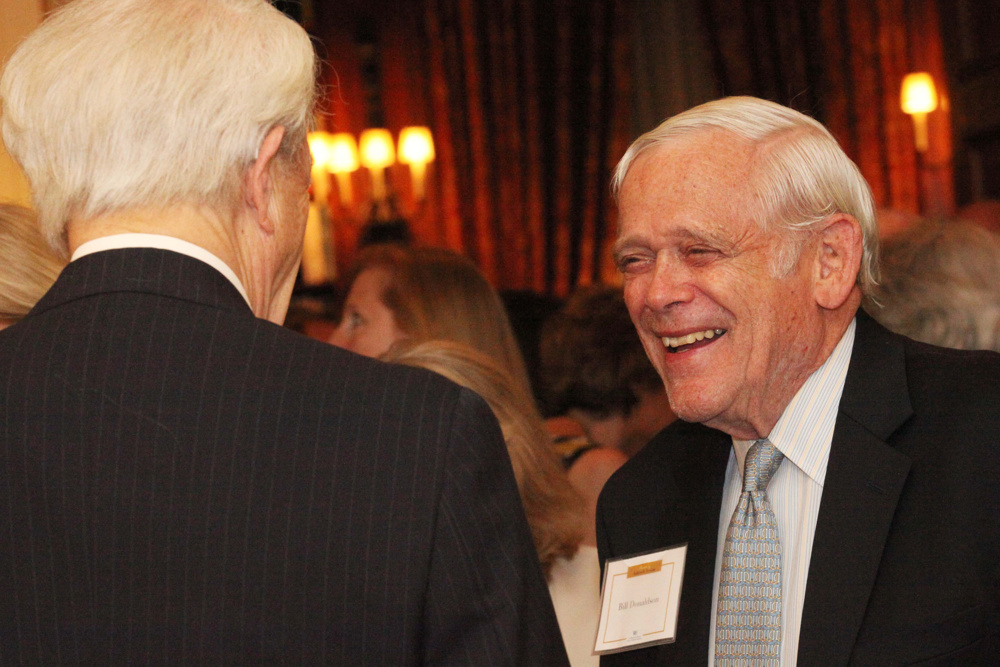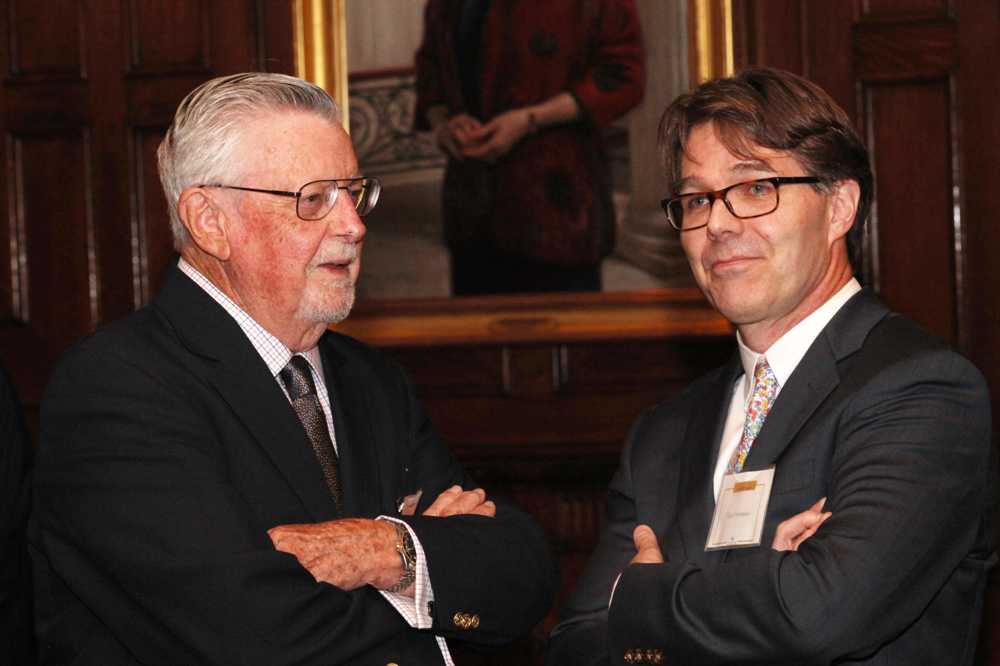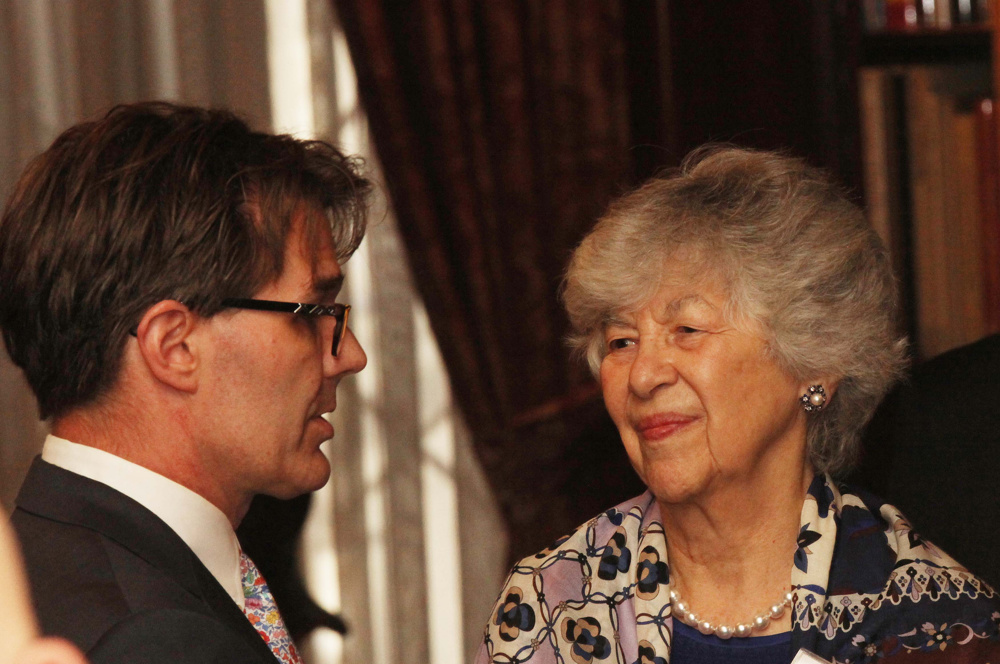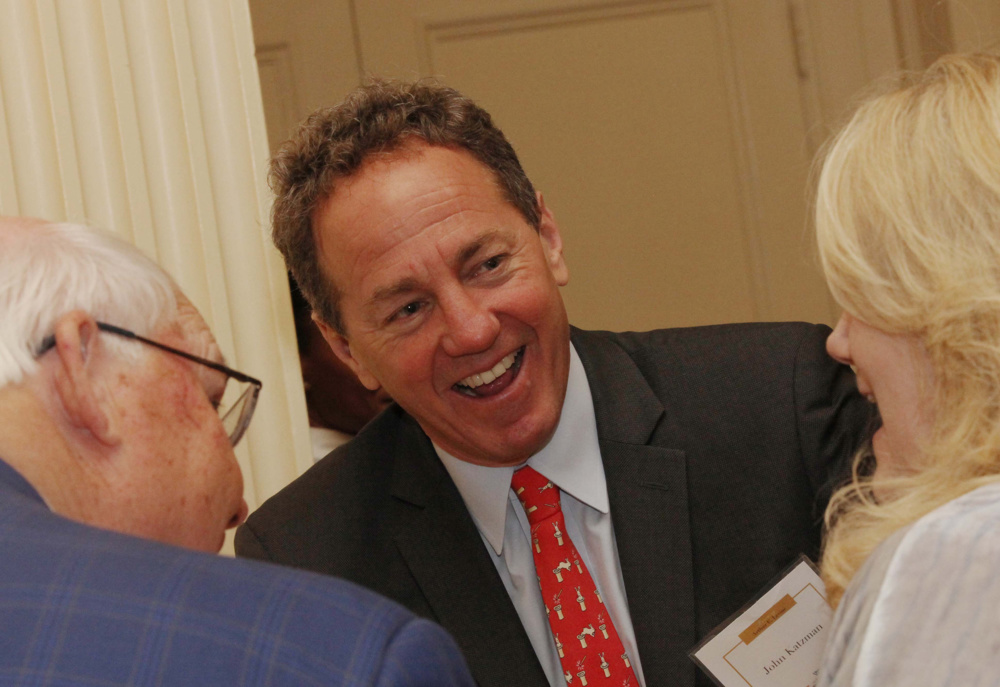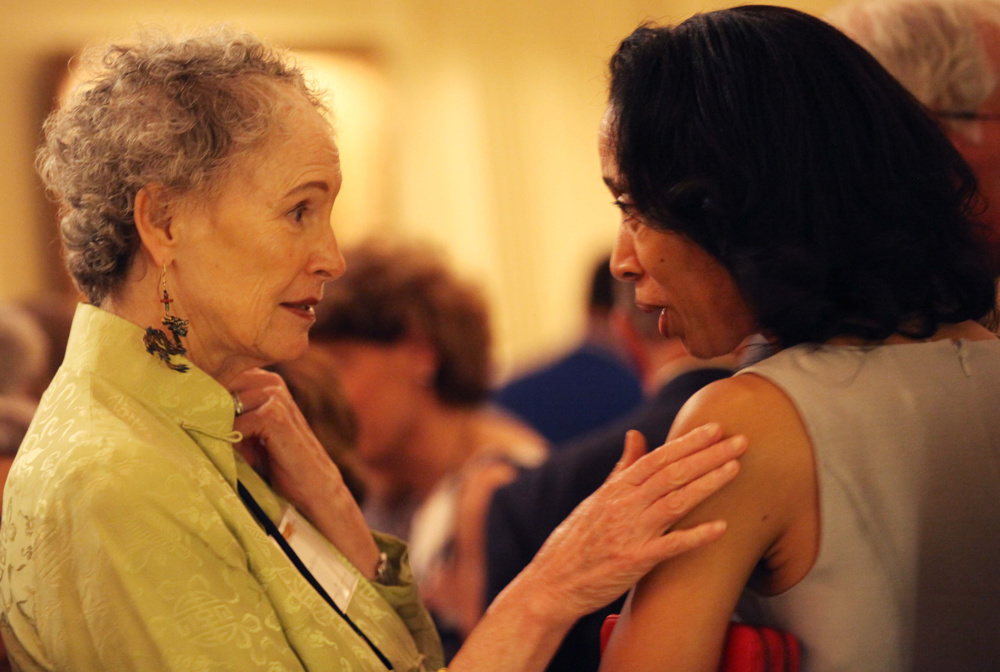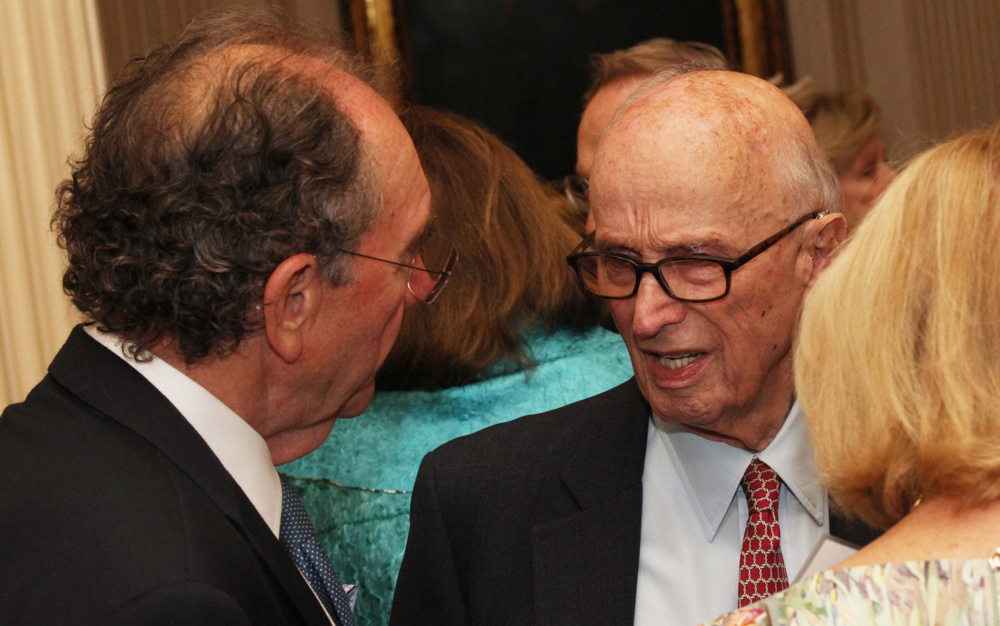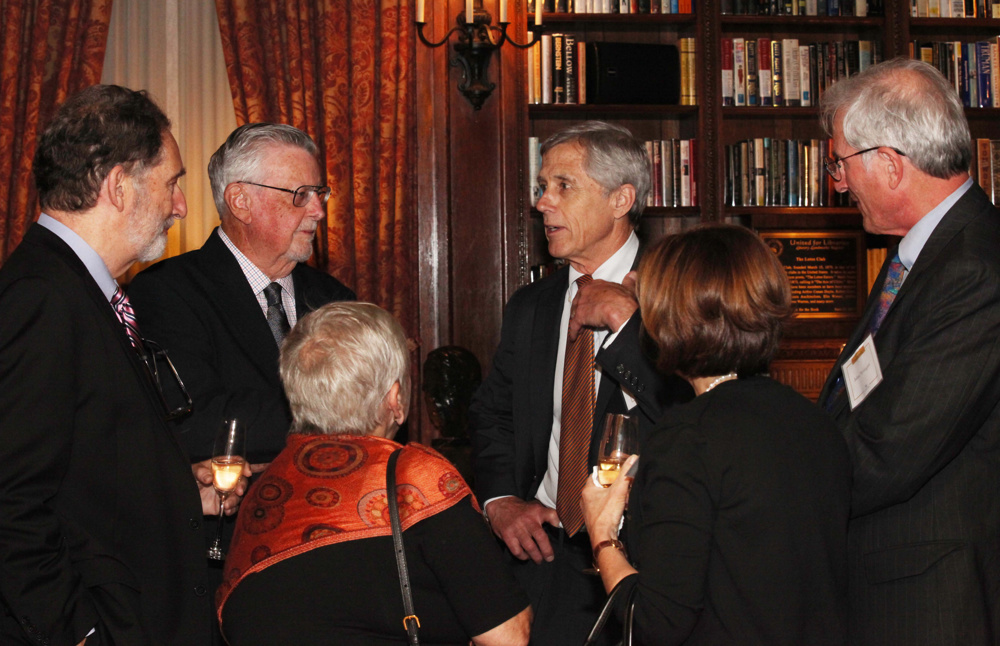News
Thoughts on the Woodrow Wilson National Fellowship Foundation
The Woodrow Wilson National Fellowship Foundation celebrated the tenure of Arthur Levine during a special dinner hosted by the WW Board of Trustees in June 2018. Various Trustees toasted Arthur and his work at the Foundation, exchanged gifts and memories, and enjoyed an evening with friends. See photos of the event in the gallery above. Bellow are some words from Arthur about his time leading the foundation. An article about his tenure also appeared in Education Week. Rajiv Vinnakota takes the reins as president of the WW Foundation on July 1.
Thoughts on the Woodrow Wilson National Fellowship Foundation: Retrospective and Prospective (2006–2019)
By Arthur Levine
When I arrived at the Foundation in 2006, George W. Bush was President of the United States, and the Foundation had five fellowship programs—the Newcombe Doctoral Dissertation Fellowship, the Woodrow Wilson Women’s Studies Dissertation Fellowships, a suite of doctoral and junior faculty fellowships supported by the Mellon Foundation, the Pickering Foreign Affairs Fellowship, and the Woodrow Wilson Visiting Fellows program. The Foundation was also developing and managing a handful of early colleges for the Bill & Melinda Gates Foundation.
In 2006, concerned that the Foundation not engage in too many disparate activities, the Woodrow Wilson Board reaffirmed and expanded the mission and purpose of the Foundation, adopting the following statement:
The Woodrow Wilson Foundation identifies and develops leaders and institutions to address the nation’s critical educational challenges.
The primary vehicle for accomplishing this is fellowships.
A principal focus of those fellowships is underrepresented and/or high-need populations and the institutions that serve them.
The Foundation also agreed, in 2006, to develop a focus on a single area: closing the achievement gap, the persistent disparity in academic achievement among the nation’s children by race, zip code, and socioeconomic status. Toward this end, Woodrow Wilson undertook three new initiatives: a teaching fellowship, a school leadership fellowship, and the creation of a 21st-century graduate school of education offering programs in teacher and school leader education.
Today, 13 years later, the Woodrow Wilson Teaching Fellowship has prepared more than 1200 teachers. Focusing on secondary-level STEM—a critical shortage area in many states’ teaching force—it has operated in six states: Georgia, Indiana, Michigan, Ohio, New Jersey, and now Pennsylvania. This Fellowship has both recruited high-ability people with undergraduate degrees in science and math to prepare to teach those subjects in high-need in-state secondary schools for a minimum of three years, and also helped to transform teacher education programs at participating universities.
It quickly became apparent that for WW Teaching Fellows to succeed, they needed strong principals and school superintendents. However, previous research—including my own—had shown that school leadership programs lacked rigor and relevance. The Foundation therefore created the WW MBA Fellowship in Education Leadership, which shifted the preparation of school leaders from education schools to business schools, seeking to make the MBA the gold standard for school leader certification. Like the WW Teaching Fellowship, the WW MBA program is state-focused; relies on university/school partnerships; and utilizes long engagements, returning Fellows who complete the program to become leaders in the districts that nominated them. Working in three states—Indiana, New Mexico, and Wisconsin—the WW MBA Fellowship has produced some 300 school leaders to date.
Finally, the Foundation has created the Woodrow Wilson Academy of Teaching and Learning. Through the Teaching and MBA Fellowships, WW has been engaged in repairing existing educator preparation programs. In contrast, the Woodrow Wilson Academy seeks to reinvent the school of education. With the Academy, the Foundation sought to invent the education school of the 21st century. The Academy was envisioned not as a hothouse, but as a resource and demonstration center, a showroom of the future of educator preparation. Created in collaboration with MIT, the Academy has developed a competency-based master’s degree program in teacher preparation, and it continues to evolve. Just this year it has gained independent 501(c)(3) status.
Even as these programs have taken shape, the Foundation has rethought its approach to its longstanding programs. The Newcombe, Mellon, and Women’s Studies Fellowships continue to make important contributions to the Foundation’s mission. Several other programs have been either outsourced or reshaped, while new ones tied to the Foundation’s mission have been added: The WW HistoryQuest Fellowship, for secondary-school teachers of American history; the Nancy Weiss Malkiel Scholars Award and the Course Hero-WW Fellowships for Excellence in Teaching, both for junior and untenured faculty; and the WW Higher Education Policy Fellowships, which seek to bridge divides between policymakers and higher education leaders, state by state. The Foundation has long experience and strong expertise in administering fellowship programs, and it continues to look for new mission-focused opportunities to do so.
Meanwhile, the next new direction for the Foundation has already emerged: the Woodrow Wilson American History Initiative, which will seek to transform the way American history is taught and learned. Announced in February 2019, this initiative will create an online platform for students and resources for teachers, seeking to promote active learning, deep understanding, problem solving, critical thinking, and a lifelong love of American history through interactive pedagogies, storytelling, and the inclusion of many voices and perspectives. The Board and staff are enthusiastic, and more details will be rolled out over the course of the year ahead.
The Woodrow Wilson Foundation has seen an extraordinary transformation over the past dozen years. We have been called a seven-decade-old startup. As the Foundation approaches its 75th anniversary, it will continue to evolve in response to national needs in education. It has been a privilege to be a part of this evolution.

